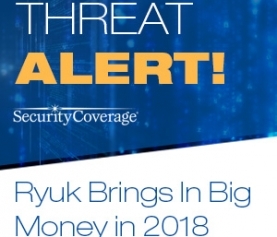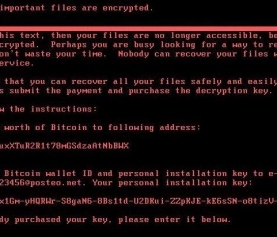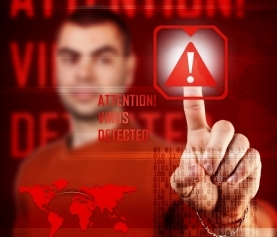You have probably heard a lot about the Ransomware threat known as WannaCry in the past couple of weeks. SecurityCoverage sent out an email to our partners detailing the attack and how it was affecting computers across the globe. There was coverage on a number of national news networks as well. As a provider you are probably aware of the danger that Ransomware presents, but how much do you know about Ransomware? Are you protected? Are your customers protected? How do you avoid it? Let’s go through some basics.
What is Ransomware?
Ransomware is a type of malware that holds the infected computer and files on that computer hostage and demands that the user pay a ransom in order to regain access to the files. It does this by encrypting all or most of the files on your computer. All of your documents, photos, videos, basically anything that you store on your computer, are subject to encryption. If you do not pay their ransom within a certain time period, the ransom goes up. If you do not pay the ransom at all, your files are deleted. Even if you do pay their ransom, it doesn’t mean you’re going to get your files de-crypted. They could just take the money and run.
How can you get infected?
The methods of infecting a PC with Ransomware are not much different than an ordinary, run-of-the-mill virus. If your Operating System is out-of-date, if you are downloading and opening attachments from unknown sources, or even if you are just visiting unsecured, questionable websites, your computer can be infected.
How can you protect yourself?
By now, most of us generally know what to avoid. Unsecured websites, questionable links, downloads or attachments from unknown email sources. Some things that may be less obvious are:
- Making sure that your Operating System or server software is up-to-date.
- Have a reliable anti-virus solution installed that not only has the latest definitions installed, but also has a proactive component like behavior-based scanning that is designed to catch new and unknown forms of malware.
- Automatic updates for your anti-virus product are highly recommended.
- Lastly, be sure you are regularly backing up your important files to the cloud or backing them up to an external hard drive and then unplugging that hard drive.
Ransomware is not particularly tough to get rid of. The problem is, if you’re infected, your files are encrypted and will be lost when deleting Ransomware from your computer. If you have these files backed up, it is easy to restore them to your computer. Ideally you have an Internet security solution like SecureIT Plus to prevent the Ransomware in the first place.





